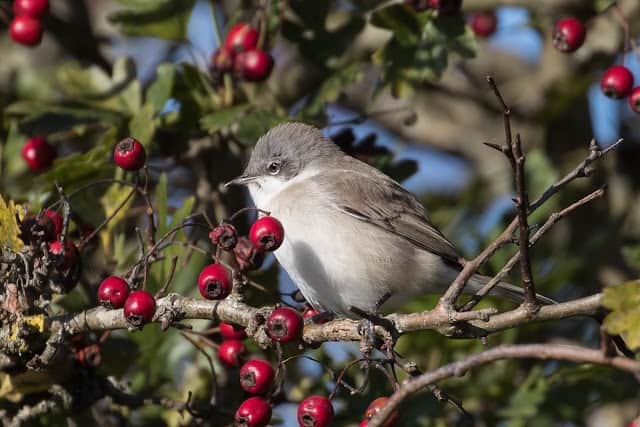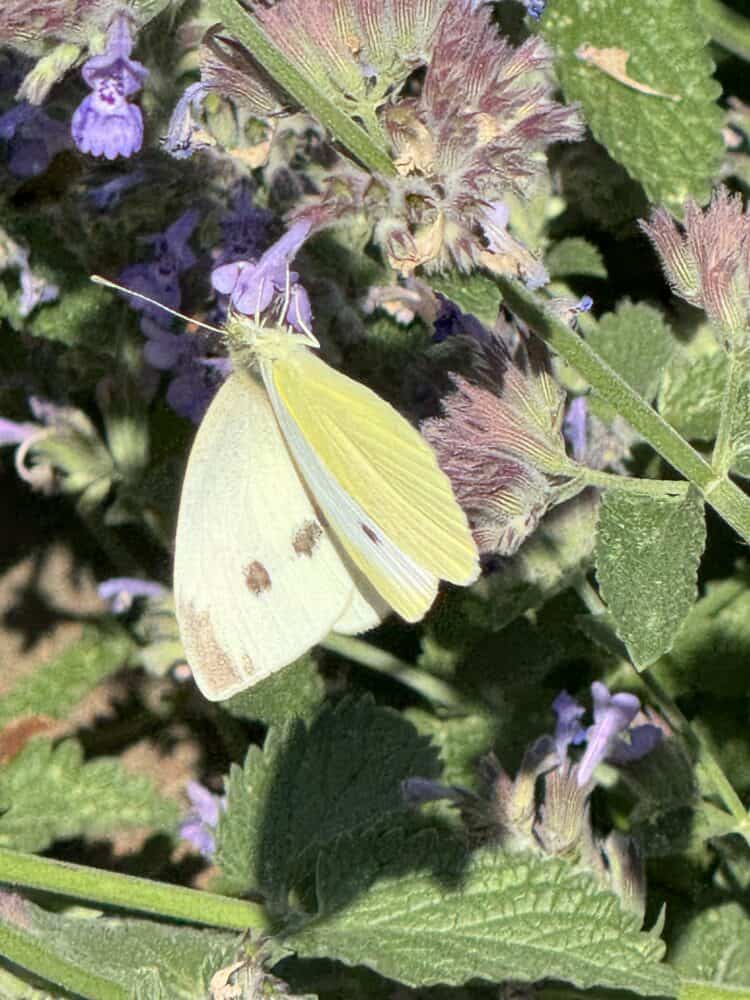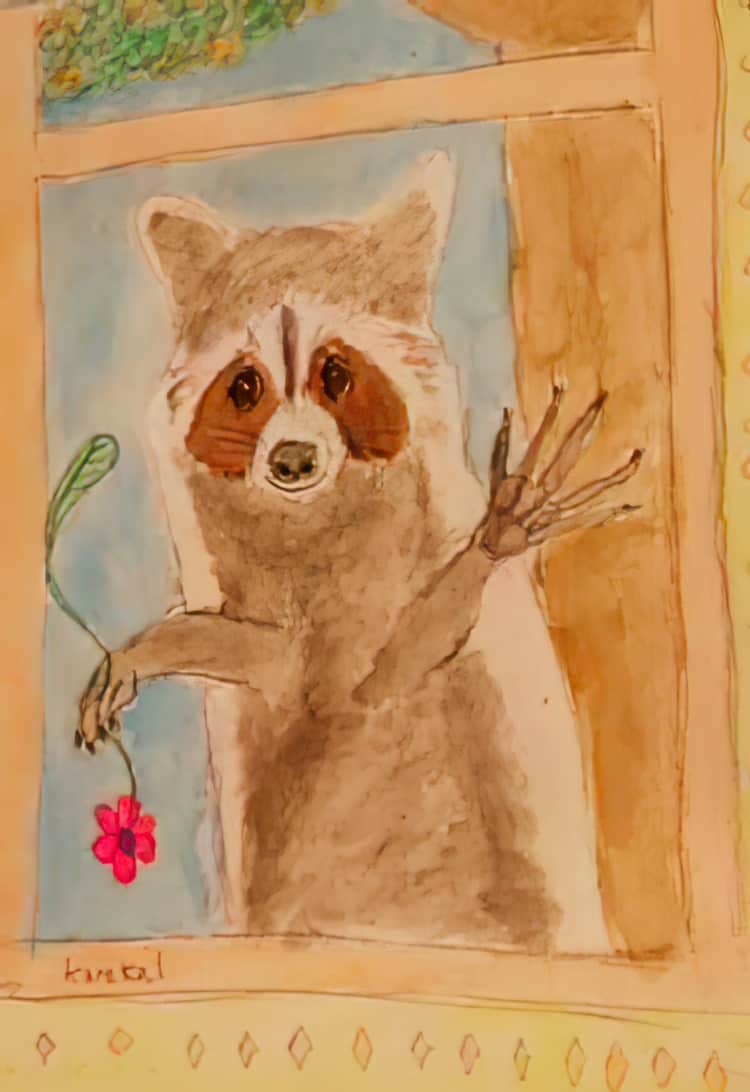It was a beautiful October day and after dropping Tobias at school I was going to spent the day at Pennington Marsh until it was time to pick him up at 15:30. After a coffee at the corner of Lower Pennington Lane I walked along the fun length of the Ancient Highway. It took me almost two hours to walk the 500m or so!
I was absorbed in the bushed trying to find a decent bird but in a north-westerly I was not too hopeful. Other than fair numbers of Chiffchaff and Goldcrest there was little to be found. The highlight was an obliging Lesser Whitethroat which despite my best efforts I couldn’t turn into one of the eastern races.
Three Bearded Reedling passed high overhead to the east, I guess these were local birds simply moving around the site. There was some visible migration evident and I recorded a total of 26 Swallow, 11 House Martin, six Siskin, eight Redpoll and 24 Sky Lark moving west.
I spent a fair bit of time around the plantation at the west end of the Ancient Highway but there was little to be seen.
Lesser Whitethroat – Ancient Highway, Pennington Marsh
Lesser Whitethroat – Ancient Highway, Pennington Marsh
Lesser Whitethroat – Ancient Highway, Pennington Marsh
Lesser Whitethroat – Ancient Highway, Pennington Marsh
As I wandered around the seawall it was evident that the tide was very high and the waders on the salt marsh were tiptoeing in knee-deeps water when normally they would be high and dry. Scanning through their ranks there were many Dunlin and Grey Plover and I counted a total of 185 Curlew. Scanning over the scrub looking for the Wryneck that has been present recently I picked up an immature Sparrowhawk that was harassing the pipits, a Marsh Harrier and a Red Kite flew north over. Red Kite is still a scarce bird here.
Sparrowhawk – Iley Point, Pennington Marsh
Walking around the seawall an obliging Wheatear was on the track while at Fishtail there were good numbers of wader with 180 Black-tailed Godwit, six Snipe and 90 Lapwing along with small numbers of Redshank and Dunlin. I watched a pair of Mallard foraging in the shallows accompanied by three Little Grebe, the Little Grebe were diving in the ‘slip stream’ of the Mallard and were clearly foraging for prey items (small invertebrates) disturbed by the Mallard – I do not recall seeing this feeding association before. Scanning over the saltmarsh I picked up an immature female Merlin chasing a Meadow Pipit which it eventually downed over the scrub at Iley Point.
Wheatear – Keyhaven Lagoon, Pennington Marsh
Wheatear – Keyhaven Lagoon, Pennington Marsh
Lapwing, Black-tailed Godwit and Redshank – Fishtail Lagoon, Pennington Marsh
Black-tailed Godwit and Redshank – Fishtail Lagoon, Pennington Marsh
Foraging Mallard accompanied by Little Grebe – Fishtail Lagoon, Pennington Marsh
At the Jetty there were around 30 Turnstone and 15 Dunlin feeding on the seaweed that has accumulated on the beach – quite unusual that the beach is not disturbed by dogs so I spent a little time he photographing them. I then headed along the seawall past Pennington Lagoon before cutting inland and back to the car.
Dunlin – Jetty Beach, Pennington Marsh
Dunlin – Jetty Beach, Pennington Marsh
Turnstone – Jetty Beach, Pennington Marsh
Dunlin – Jetty Beach, Pennington Marsh
Dunlin – Jetty Beach, Pennington Marsh
Dunlin – Jetty Beach, Pennington Marsh
Chiffchaff – Pennington Lagoon, Pennington Marsh
Simon Colenutt
I began birdwatching at the age of nine when living on the Isle of Wight. After obtaining a copy of the Isle of Wight Bird Report from 1976 I realised that Manx Shearwater, Arctic Skua, Pomarine Skua and Black Tern were regularly seen at St.Catherine's Point, only five miles from my home village of Chale Green. To a nine year old these birds were near mythical and so I just had to go and try to see them. Little did I know that these birds were seasonal and after a long winter of seeing nothing I eventually started to bump into other birdwatchers as March drew to a close. It was then that Dave Hunnybun, Dave Wooldridge, Paul Castle, Peter Gandy and Audrey Wilkinson introduced me to the art of seawatching and the joys of bird migration, I have not looked back since.




















Leave a Reply